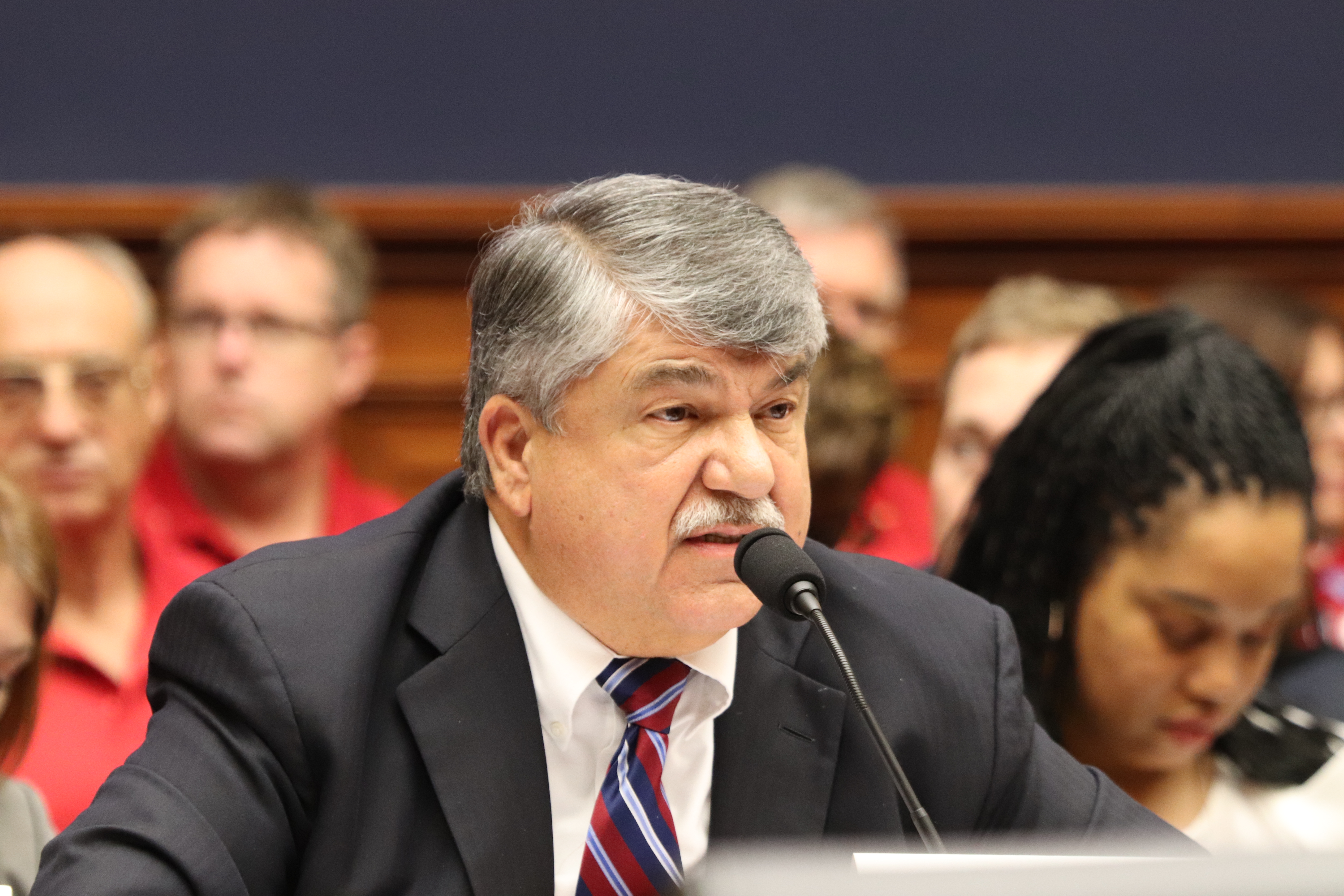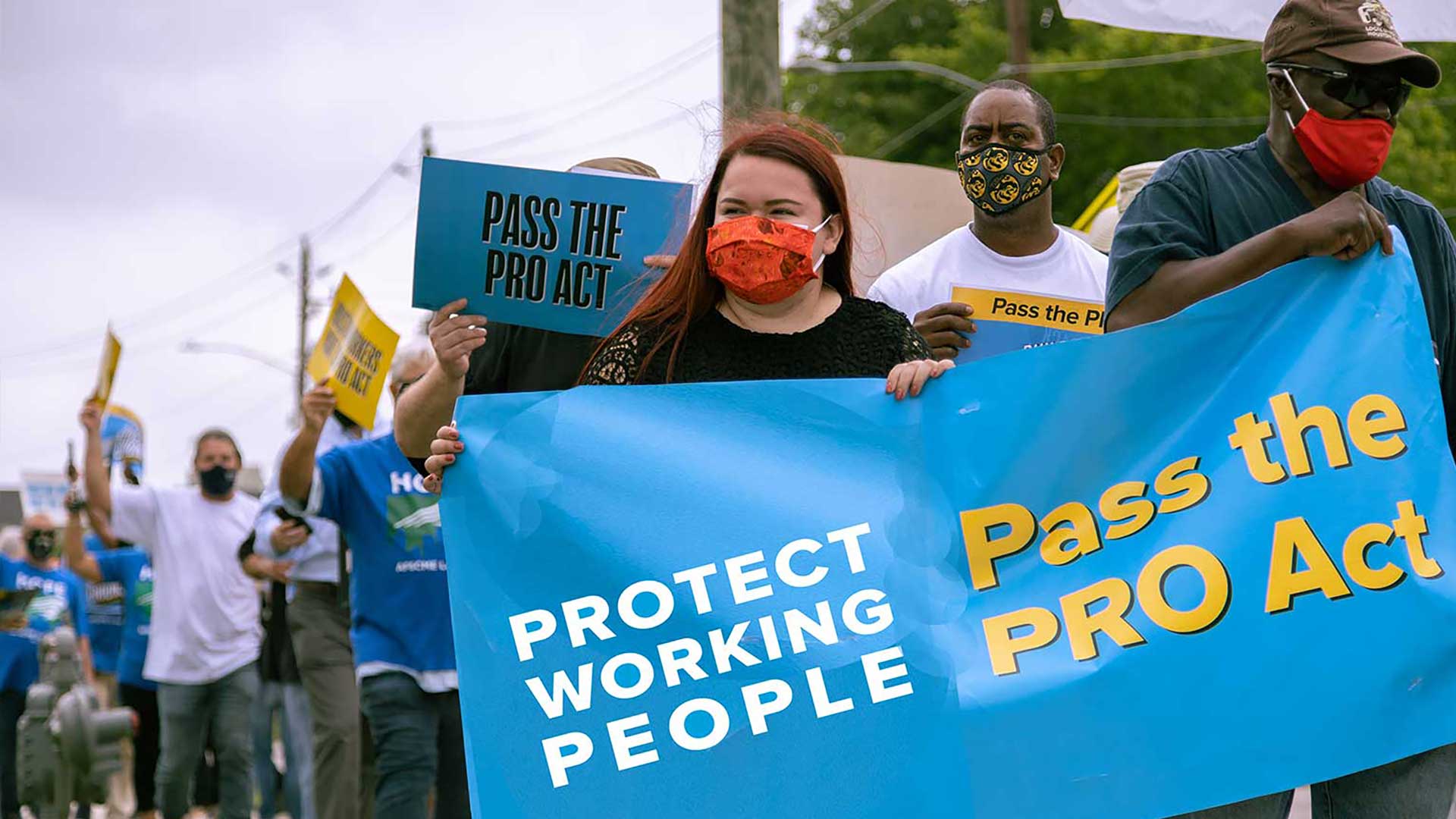
AFL-CIO President Richard Trumka today delivered the following statement before the House Education and Labor Subcommittee on Health, Employment, Labor and Pensions in support of the Protecting the Right to Organize (PRO) Act:
Chairwoman (Frederica) Wilson...Ranking Member (Tim) Walberg...and members of the subcommittee:
On behalf of the 12.5 million members and 55 unions of the AFL-CIO, thank you for inviting me to testify today.
I want to thank House Education and Labor Committee Chairman Bobby Scott and his colleagues for the foresight they have demonstrated in crafting this important legislation.
Gallup recently put the popularity of unions at 62 percent—a 15-year high.
The Wall Street Journal reported that 2018 was the biggest year for collective action in three decades. Teachers from West Virginia to Arizona. Google employees. Workers in every sector and every region are embracing the transformational power that comes from joining together in common cause.
MIT found that half of non-union workers would vote to join a union today if given the chance. That’s more than 60 million Americans.
So why haven’t we seen a rise in union membership commensurate with this surge in approval, recognition and desire? The answer is clear: Our woefully outdated labor laws no longer serve as an effective means for working people to have our voices heard.
The stated purpose of the National Labor Relations Act is to encourage collective bargaining. Yet in the more than 80 years since its passage, every amendment to the law has made it harder for workers to form unions.
Today, union-busting consultants are paid tens of millions of dollars to deny workers a voice on the job. And once a union election is won, these same bad actors do everything in their power to undermine the collective bargaining process.
Workers are forced to sit in meetings where the only item on the agenda is bashing the union. Pro-union workers are fired. Employers refuse to bargain in good faith. Some refuse to bargain at all. And far too often, the financial consequences for breaking federal law are virtually nonexistent.
This must change. The Protecting the Right to Organize Act will change it.
Imagine if, when running for office, your opponent could force the electorate to listen to speeches urging them to vote against you. Imagine your opponent had the power to punish these voters if they supported you. Imagine that Congress refused to recognize your rightful election. And then imagine that once you were finally seated, you were denied the basic rights and responsibilities that come with the office.
This is the grim reality for a huge number of workers seeking to form a union today. Misinformation. Reprisal. Delays. And even after all of those obstacles are overcome, an outright refusal to recognize the election results. I’ve included several such examples in my written testimony.
That’s why half of non-union workers want to join a union today, yet less than 12% actually have one.
Why does this matter? Simply put, workers in unions bargain for higher wages and are much more likely to have health care and a pension. The union advantage is even greater for people of color and those without a college degree. Unionized workers have a real say in critical workplace issues like time off to care for a loved one, the deployment of technology and protection from discrimination.
A happier, healthier, more upwardly mobile workforce is good for our economy as consumers have additional money to spend. Local tax revenues increase, and education funding is bolstered. Inequality shrinks. It’s a virtuous cycle.
The union movement and all working people are hungry for pro-worker reforms to our existing labor laws. The PRO Act would do many important things, chief among them provide more substantial relief for workers whose rights have been violated...ensure a process for reaching a first contract once a union is recognized...and create a true deterrent, so employers think twice before violating the law.
Something is happening in America. Workers are embracing collective action with a fervor I haven’t seen in a generation. It is time for our laws to catch up. It is time to make the PRO Act the law of the land.
Thank you.


